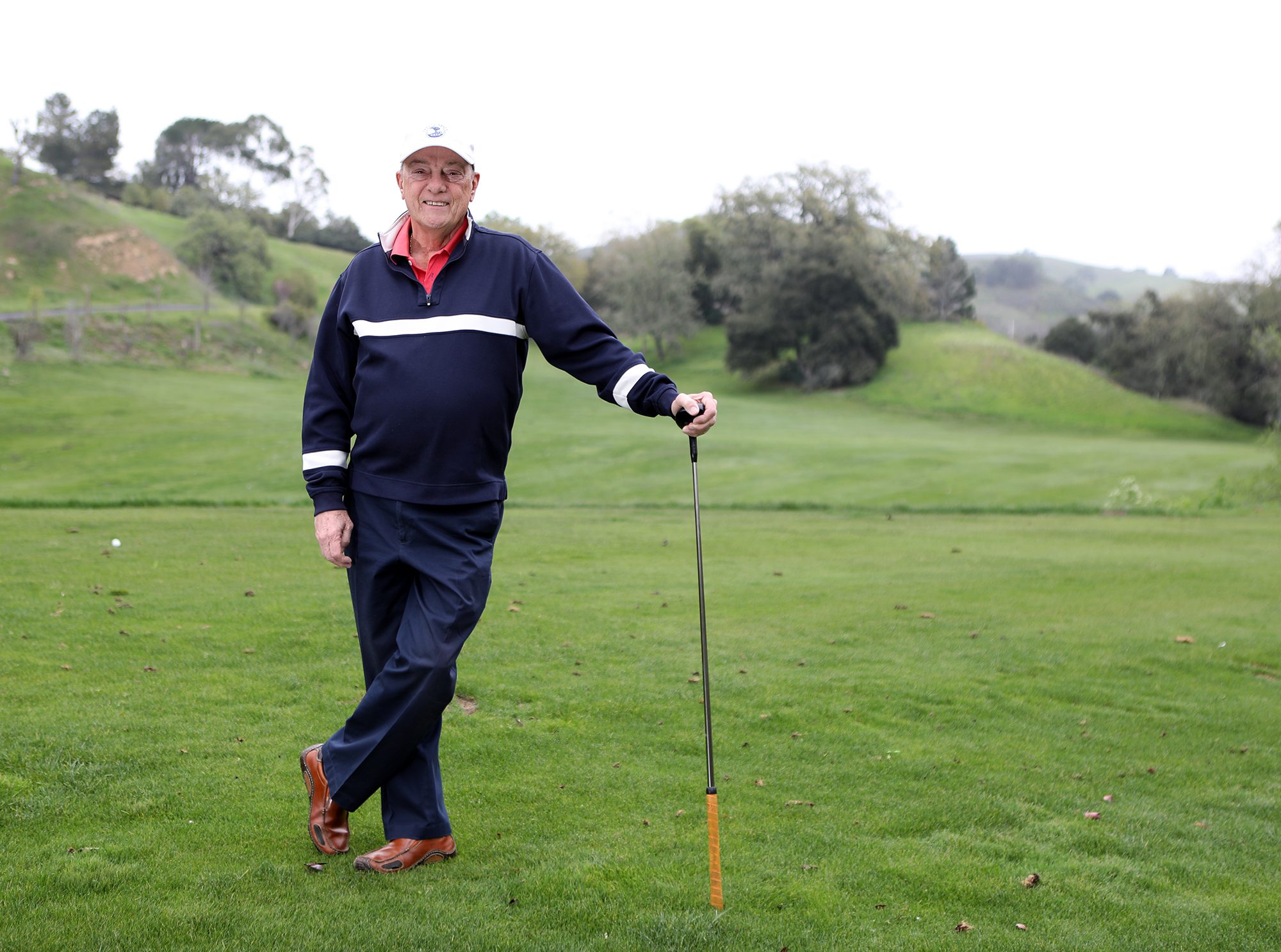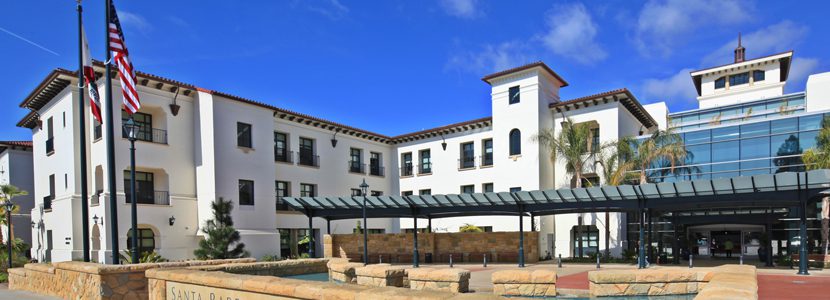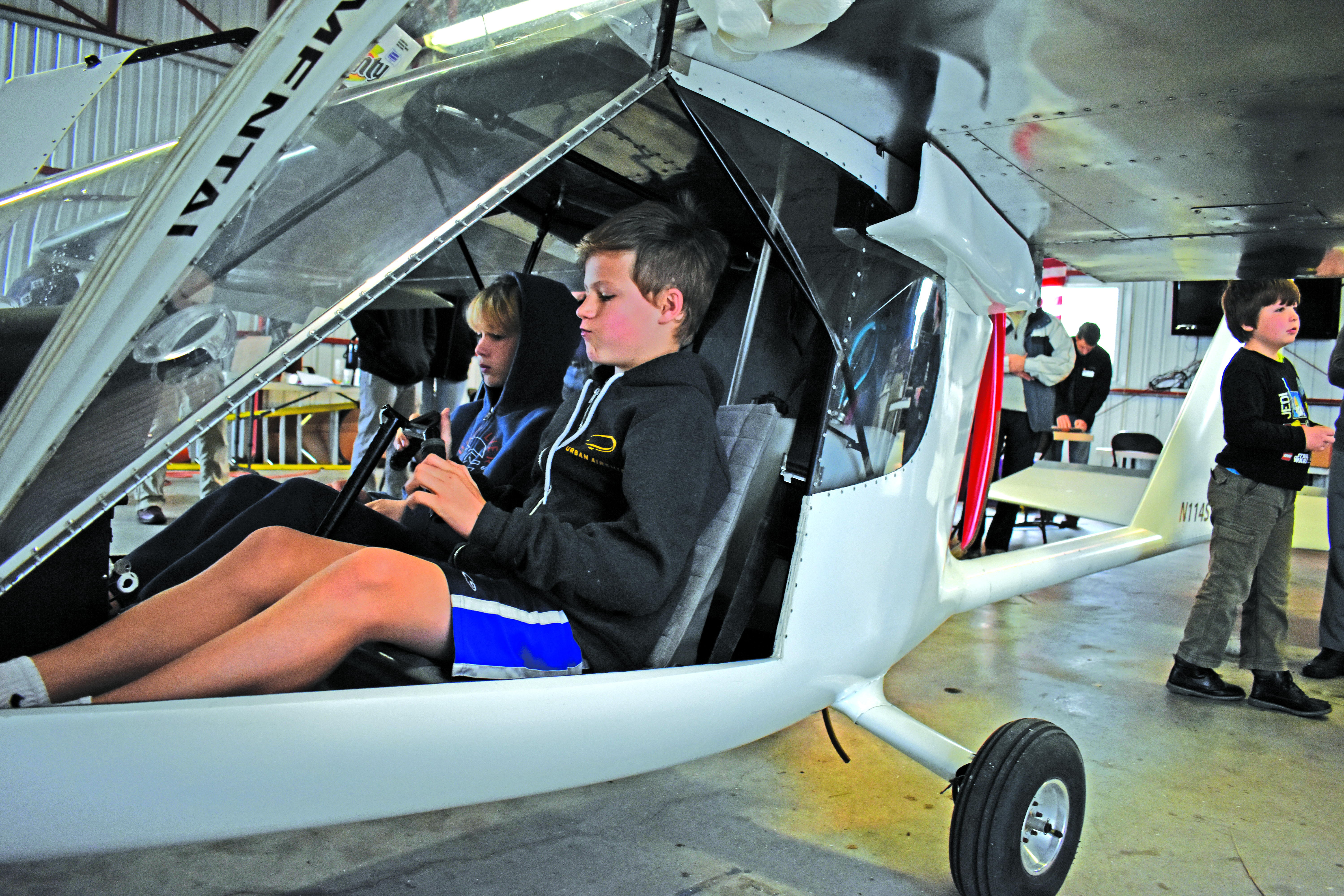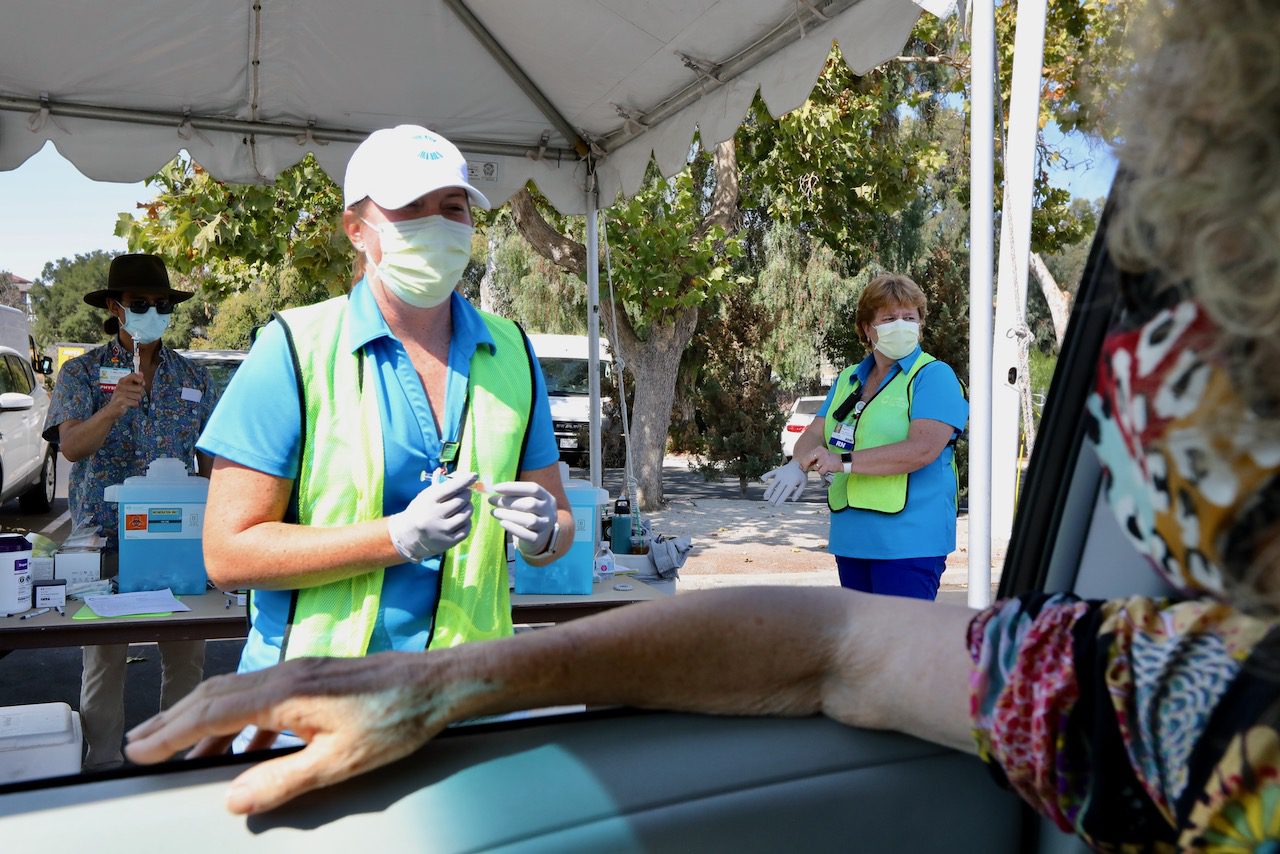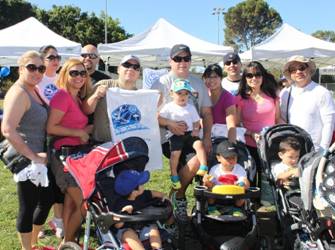By April Charlton
Contributing Writer
When longtime golfer Lee Embley of Santa Ynez was diagnosed with stage four lung cancer in summer 2015, he had the typical “fight or flight” response.
He chose to fight, and he used golf to help him in his battle.
At the time of his diagnosis Embley, who will turn 73 in May, was given less than a year to live. His doctors told him his best chances for survival any longer were “very, very aggressive chemotherapy until a new science was developed,” he said.
Embley’s oncologist also gave him a set of directives for his health that included integrating physical, emotional and mental wellness, he explained.
“There were six key steps that I needed to do simultaneously,” Embley said. “Cancer isn’t selective. I immediately turned to what I know — golf. Guys react differently to cancer than women. Guys go into their man caves.”
Being a 40-year golfer, Embley said, he looked at how he could use the game he understood and loved as part of his cancer treatment and own wellness program. He started by walking the green at Alisal Ranch Golf Course.
“I intentionally deconstructed the game of golf so I could walk the course,” Embley said. “While I was getting the steps in, I would trigger the thirst and that would trigger nutrition. So I built a sequence.
“I was getting Vitamin D from the sun,” he explained. “I was increasing my heart rate.”
By finding a way to exercise — walking the golf course and then hitting balls as his strength grew — Embley said he was also helping to dissipate toxins in his body created by the cancer and mitigate the effects of chemotherapy. He found he could meet his basic wellness goals on the golf course, and the entire process became very mindful.
He described his time out on the course during his cancer treatments as being “esoteric” and said within 13 months of using his newly deconstructed golf game, he had hit five holes.
Those dream shots helped Embley develop his Golf Beats Cancer nonprofit organization and self-care program — Links to More Good Days — that aims to create a wellness lifestyle for cancer patients like himself.
Now his cancer has returned and he is again undergoing chemotherapy.
“I had a program, but it was just for me,” he said by phone recently, but “you can do this on any golf course. It’s an integrative manual.”
Embley has been working with the American Cancer Society, Ridley-Tree Cancer Center in Santa Barbara and the Santa Barbara Cancer Foundation to incorporate Links to More Good Days into their programming so patients undergoing chemotherapy or in recovery have an effective way to manage the effects of treatment and to realize they aren’t alone.
Part of the Links to More Good Days program is what is called “Golf Buddies,” who are friends, supporters, survivors and motivators who do whatever it takes to help get a cancer patient out on the course, even if it’s just to walk a few holes or putt a ball.
Golf buddies also serve as a critical link of support for people undergoing chemotherapy, sending encouraging text messages and emails, also making phone calls to the patient, Embley said, which makes a world of difference when people are taking life-altering drugs in a fight to save their lives.
“We always say, ‘If we could make that (illness from cancer) only six days rather 10 days, that is all we are looking to do,” he explained.
Golf Beats Cancer also allows golf clubs to use the Links to More Good days program and organize golf tournaments where net proceeds go back to funding the program in a particular community.
To date, 25 clubs have signed up for his program in some form, Embley said, noting it’s a win for cancer patients because they get access to the golf facility for free for a year, have their clubs supplied for free and get complimentary lessons from pros, while also getting the benefit of Links to More Good Days.
The Alisal Ranch Course hosted a Golf Beats Cancer tournament on March 17, for example.
“It’s just gratifying,” Embley said about seeing his program in action. “This gives cancer patients a way to escape, but in a healthy way and for their wellbeing.”
Funds from one golf tournament can support 15 to 50 cancer patients annually, he said.
For more information, email Embley at reembley@gmail.com or call 805-686-5942.

